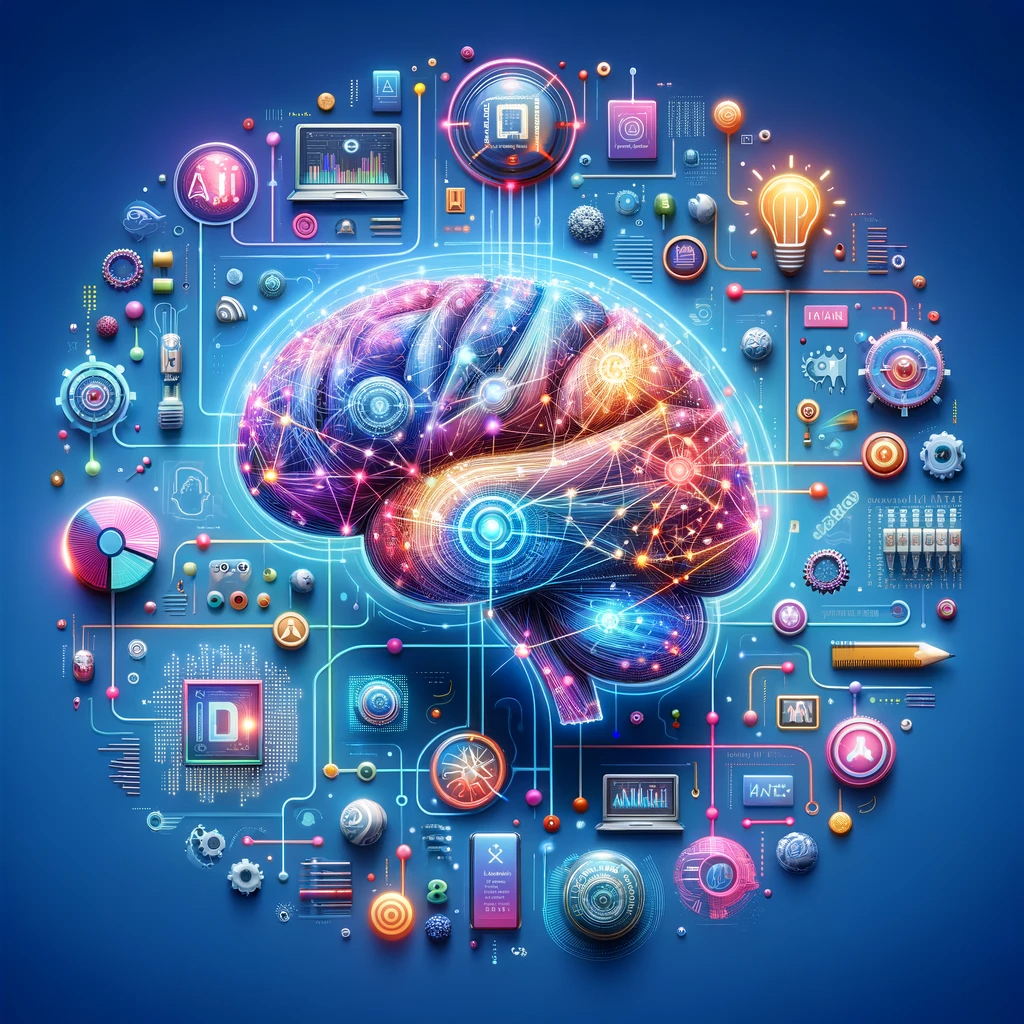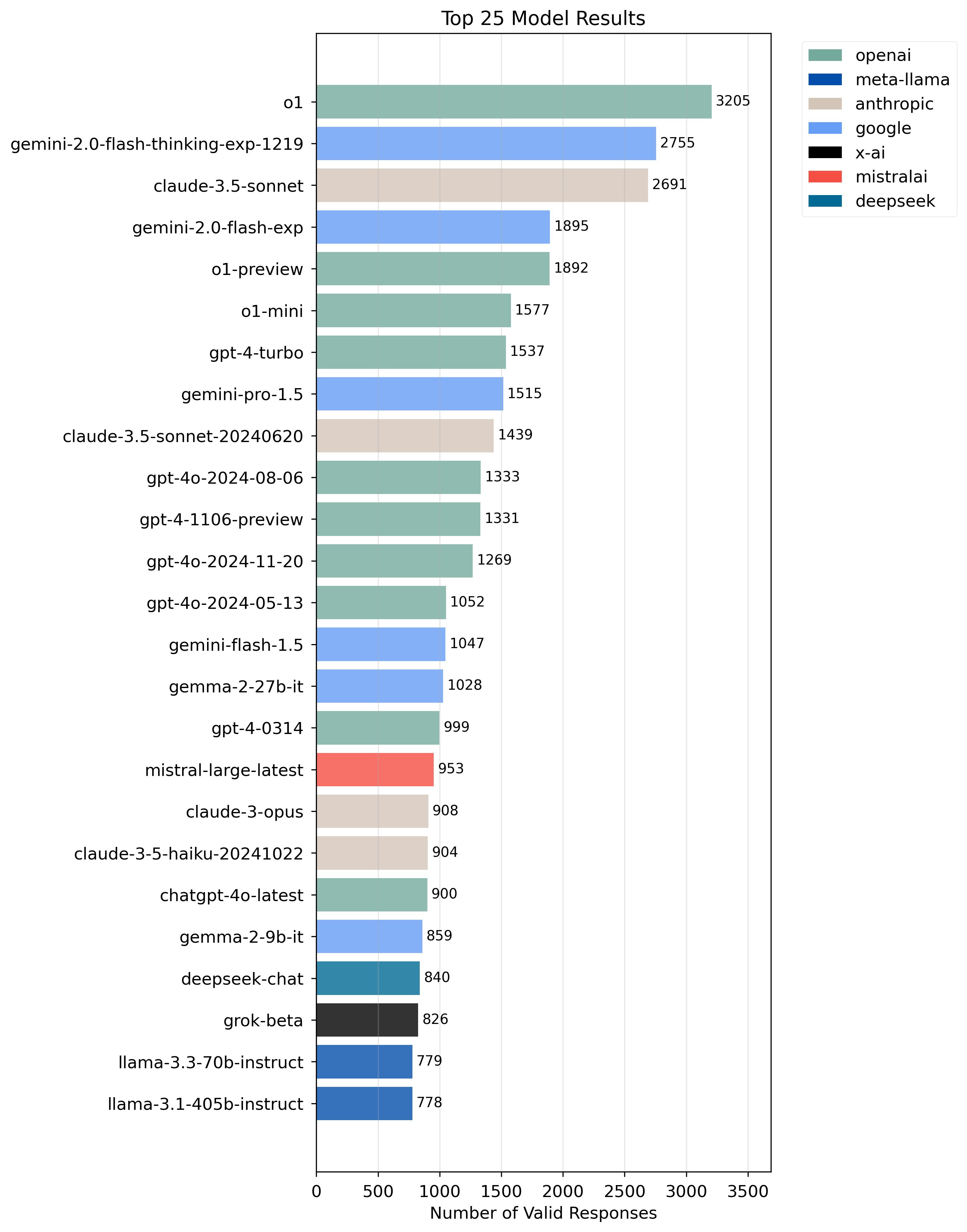What is Artificial General Intelligence: A 2025 Beginner's Guide
We might make cash when you click on links to our partners. Learn More.

What is synthetic basic intelligence (AGI), and why does it matter? As one of the most talked-about topics in innovation today, it has sparked a race amongst top companies like OpenAI and Google to turn this advanced concept into reality. Understanding AGI is necessary due to the fact that it has the prospective to revamp markets, affect our society in extensive ways, and change the method we connect with innovation. Here's what you require to learn about what it might be able to do, how it might change industries and fields, and the substantial difficulties facing its development.

KEY TAKEAWAYS
• AGI varies from traditional AI in key methods in that it would be able to believe, learn by itself, and adapt to new challenges like humans unlike traditional AI, which is developed for specialized tasks and runs within a minimal scope. It needs human beings to upgrade and refine capabilities. (Jump to Section).
• Once it comes true, AGI would have the ability to make remarkable advances in numerous fields, consisting of health care, research study, and financing sectors. (Jump to Section).
• Creating AGI is challenging due to the research study challenges that consist of technical, ethical, and social issues. Addressing these obstacles is central to maintaining the safe and favorable development of this innovation. (Jump to Section)
Featured Partners: Artificial Intelligence Software
Find out more
TABLE OF CONTENTS
What is Artificial General Intelligence (AGI): A Clear Definition.
Understanding AGI vs Traditional AI.
Potential Applications of Artificial General Intelligence.
in Artificial General Intelligence Research.
3 Introductory AGI Courses to Consider.
Frequently Asked Questions (FAQs).
Bottom Line: Why Knowing What Is Artificial General Intelligence Matters.
What is Artificial General Intelligence (AGI): A Clear Definition
Artificial general intelligence, or AGI, describes a type of synthetic intelligence (AI) that can analyze, learn, and perform any cognitive task that a human can do. Unlike today's AI, which is constructed to deal with particular jobs like advising products or processing data, AGI would have the ability to adapt to new challenges and use understanding across numerous fields. In other words, this advanced type of AI would think and reason like a human. While AGI holds excellent prospective, it's worth keeping in mind that it is still a concept today, with no fully established systems offered yet.
Key Capabilities of Artificial General Intelligence
AGI would have a range of abilities that mimic human intellectual functions, so it can carry out jobs beyond the narrow focus of the present AI tools in the market. Some essential capabilities consist of the following:
Human-Like Reasoning: The innovation would be able to comprehend and make decisions the way people do. It would believe critically, fix issues, and create options based on its own experiences and previous interactions, similar to how we apply past knowledge to new situations.
Solving Unfamiliar Problems: Among AGI's strengths is its potential to take on new issues. Unlike standard AI, which is trained to carry out particular jobs, AGI would have the capability to manage problems it hasn't been straight trained to fix. It could figure out how to approach a totally new difficulty, simply like people do when faced with something we have actually never encountered before.
Self-Learning and engel-und-waisen.de Adapting: AGI could fine-tune its abilities and learn from experience, without the requirement to be manually upgraded every time. It would observe and analyze information, gain from errors, and discover better ways to finish jobs over time. This indicates AGI might adjust to brand-new scenarios and improve at jobs by itself.
Using Knowledge Across Different Areas: AGI would have the ability to take what it learns in one area and apply it to other tasks. For instance, if it learned how to resolve mathematics issues, it could utilize that knowledge to resolve challenges in other fields, like science or business. The capability to transfer abilities across different locations is something human beings do naturally and would make the technology flexible in diverse sectors.
Understanding and Responding to Emotions: Recognizing and reacting to human feelings would also be within AGI's abilities. This would be important in settings where understanding individuals's feelings matters, such as health care, client service, or social situations. By reacting to emotions properly, AGI would be better geared up to deal with humans in an effective method.
Understanding AGI vs Traditional AI
The table below supplies a picture of the significant differences between AI and traditional or narrow AI by highlighting their capabilities, versatility, and akropolistravel.com current status.
AGI would have the ability to believe, learn autonomously, and adapt to brand-new obstacles like humans. However, it is still theoretical and has not been understood yet. On the other hand, conventional AI is constructed for particular tasks and operates within a fixed scope. It can not adapt to new jobs without human input.
For instance, an AGI might discover to detect medical conditions, then utilize that knowledge to develop individualized treatment plans-and even change its technique based upon the client's development. Additionally, it could use this analytical ability to jobs in completely various fields, such as developing service strategies or recommending on environmental conservation. In contrast, standard AI, like a diagnostic tool, can only evaluate medical information for specific conditions. It can not adjust to other areas or improve on its own.
Potential Applications of Artificial General Intelligence
While AGI isn't here yet, its prospective applications span many fields and hold terrific guarantee of extreme advancements in many sectors. Without being limited to particular jobs like narrow AI, AGI would be highly flexible and might use its abilities to resolve multi-disciplinary issues. It might get rid of obstacles presently beyond the capabilities of existing AI applications.
Transforming Healthcare
AGI would change the game in health care by diagnosing complex and rare diseases with higher accuracy, even in cases where signs are unclear or overlap with multiple conditions. It could create highly personalized treatment plans by studying client history, genetic info, and real-time health data. In addition, AGI might speed up drug discovery, determining possible treatments in weeks rather than years by processing huge datasets and running predictive simulations.
Advancing Scientific Research
In scientific research, AGI would be able to simulate experiments, evaluate complex datasets, and produce hypotheses. It could speed up breakthroughs in quantum physics, genomics, and climate science. By integrating knowledge from numerous domains, the technology might uncover connections and services that might otherwise go undetected by conventional AI.
Improving Industry
Organizations in the commercial field might use AGI to increase performance in real-time by handling whole supply chains. It would forecast and resolve disturbances before they happen. In production, it might manage autonomous factories, optimizing production procedures while maintaining safety and quality standards. Its ability to adjust to altering scenarios would make it an indispensable tool in industrial environments.
Enhancing Business Strategy
AGI could improve organization decision-making by assessing market trends, customer behavior, and functional information to discover opportunities and threats. In contrast to narrow AI systems, AGI would innovate solutions to difficult organization problems, such as handling economic unpredictability or forecasting long-term market shifts. Its capability to discover from varied sources would empower organizations to stay competitive.
Redefining Finance
In the financial sector, AGI could increase forecasting accuracy by discovering patterns in vast amounts of monetary data, so investors and institutions can make informed decisions. It would also have the ability to identify scams in real-time by recognizing subtle anomalies that standard AI systems may miss. Additionally, AGI could construct more robust financial models, considering complex variables and scenarios to mitigate threats.
Challenges in Artificial General Intelligence Research
Developing AGI is among the most enthusiastic objectives in innovation, but it includes numerous problems. These difficulties consist of technical, ethical, and societal areas, making AGI advancement an intricate and multi-faceted process. Overcoming the following difficulties is identical to ensuring security, maintaining ethical standards, and thoroughly preparing how AGI's introduction and usage will impact people, industries, and society as a whole:
Making AGI Truly Flexible: AGI would require to handle a wide variety of issues and adapt to new scenarios, much like people. Building a system of flexibility is incredibly tough because existing AI tools are not developed to think or find out at this level of elegance.
Massive Computing Needs: To replicate human intelligence, AGI would need enormous amounts of calculating power to procedure info from varied sources quickly. Determining how to make such systems powerful and effective enough for real-world use is a considerable obstacle.
Understanding Human Intelligence: We do not fully understand how human thinking works, specifically complicated aspects like instinct or consciousness. Without this understanding, it's challenging to construct machines that can replicate human-like thinking.
Making AGI Safe and Ethical: AGI might possibly be misused, like to produce biased systems or damaging tools like self-governing weapons. Researchers must make certain that AG is constructed responsibly and follows stringent ethical guidelines. This is a difficult task that necessitates international partnership.
Keeping It Under Control: There's a risk AGI could act in methods we don't anticipate, specifically considering that it would have the capacity to find out and alter over time. Ensuring that these systems stay aligned with human values and are safe to utilize is one of the biggest difficulties in AGI research study.
Influence on Jobs and Society: If AGI ends up being a truth, it might replace tasks or cause financial inequality by benefitting some groups more than others. Preparing for these social effects is just as crucial as developing the technology itself.
High Costs and Resources: Researching AGI requires a great deal of money, time, and professional understanding. Not all organizations have these resources, slowing down development and leaving smaller businesses out of the race.
3 Introductory AGI Courses to Consider
Familiarizing yourself with AGI can give you an one-upmanship, whether you want to advance your career in AI or merely wish to remain informed about emerging innovations. The following introductory courses can help you acquire a deeper understanding of what artificial general intelligence is, so you can strengthen your understanding about this appealing AI advancement.
Artificial General Intelligence (AGI): An Initial Course on Udemy
This Udemy course offers a fundamental understanding of AGI, ideal for novices without any prior experience. The course covers relevant subjects, including the foundations of AI, the essentials of AGI, and the most recent patterns in the field. It likewise checks out the advantages, dangers, and obstacles associated with AGI, equipping you with insights into what the sophisticated innovation can accomplish. The entire course consists of 15 lectures and can be completed in approximately 45 minutes. Upon conclusion, you will receive a certificate to boost your qualifications in the task market. This initial course expenses $24.99.
Intro to Artificial General Intelligence (AGI): Future of AI on Udemy
Udemy's initial course provides a detailed overview of AGI for students with no technical background. It discusses the historical context and structure of AGI, the distinctions in between narrow AI and AGI, and ethical factors to consider surrounding its development. In addition, it attends to future trends in AI and AGI, shedding light on the challenges and chances that lie ahead. Spanning one hour and 46 minutes, the course includes 39 lectures, on-demand video, and downloadable resources. It also has a practical test at the end to strengthen your understanding. You will be awarded a certificate when you complete the course. It is readily available as part of Udemy's premium plans, beginning at $20 monthly, or as a different purchase of $49.99.
Artificial General Intelligence (AGI) on Udemy
This Udemy course brings a clear and succinct intro to the subject, with on-demand videos and 22 lectures. It elaborates on major AGI principles and the role of robotics in AGI development. It likewise examines the ethical, software, and hardware difficulties in creating AGI. The course offers tests to test your knowledge and a certificate of conclusion. Priced at $44.99, it is produced learners at any level, making it available and important for anybody who wants to find out more about AGI.
Frequently Asked Questions (FAQs)
Achieving AGI could transform industries, boost decision-making, and cause substantial improvements in technology. However, it also raises issues about ethics, job displacement, and the requirement for appropriate guideline to make sure it is developed securely and properly.
Experts disagree on how far we are from achieving AGI. Sam Altlman of OpenAI thinks in 2025, AI agents might sign up with the labor force, eventually paving the method to AGI development. On the other hand, a survey of AI researchers puts the typical quote around 2047. Despite fast AI advancements, current systems are still limited to narrow tasks and do not have the broad, versatile reasoning of humans-so AGI is most likely still decades away.
The concept of AGI fully replacing people is still debated. Despite the fact that it's most likely that AGI will assist us by taking over repetitive tasks, there is a possibility that it could displace particular tasks. That stated, instead of completely replacing humans, AGI is expected to work alongside us, dealing with technical responsibilities while we focus on tasks that require imagination and empathy. At the end of the day, the impacts of AGI will depend on how society selects to handle and integrate it.

Bottom Line: Why Knowing What Is Artificial General Intelligence Matters
Understanding synthetic general intelligence is important since this innovation might change markets, solve hard issues, and change how we use AI. But as we start to develop AGI, we need to carefully attend to a number of difficulties, consisting of technical issues, ethical concerns, and its total impact on society. By learning more about AGI's potential and dangers, we can work toward making certain it is developed properly and used in manner ins which would benefit everyone.

- Straße, Hausnummer Moises GbR
- PLZ Ort, Land 49439, Mühlen, Deutschland
- Bundesland / Kanton Garvan Consulting
- Land St. Pierre und Miquelon
- Telefon Garvan & Moises AG
- Fax Garvan ai & Garvan Ltd
- E-Mail Garvan Ltd
- Web Reuna ai Garvan AG
- Umsatzsteuer-ID Moises ai Services


